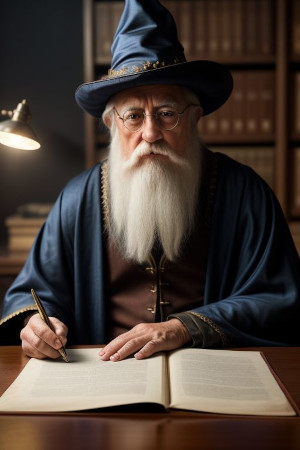2015
Dec
29
Why I Haven't Written for Children
There are a few things that people shouldn't do unless they can't help it. Unless they were born to do it. Two of those are writing and teaching, and I am afflicted with both.
If you've read my profile anywhere, you know that I've been writing for a long, long time. I'm not even sure with the literary bug first bit me, but I clearly remember a story in fourth grade. You're about nine years old in fourth grade; I was writing at least since then.
The other theme that has threaded through my life is children. Teaching Sunday School and CCD, science fairs, Odyssey of the Mind, school programs, youth soccer, Girl Scouts, Camp Fire, youth caving. That's not even the whole list. Why? If you are unfortunate enough to view the world purely mechanistically, you're rather compelled to see children as juveniles of a particular species of primate. Some of us, though, are lucky enough to be able to see them as God's gift to humanity. They are blank pages upon which inspiring epics can be written. They are the hope of the future. Dogs and grumpy old men who don't like them are missing out on one of the greatest blessings in life. That's why.
It's not surprising that I write a lot of children. However, they're not children that are necessarily fit for children to read about. Kolikki and Kolinda hold tremendous power. Ik is more terrifying than Freddy Kruger if you get on her bad side. The first two will kill you if need be, but Ik is far, far worse than that. Nine-year-old Mellia absorbs the entire contents of a Valshetti educational Star of Knowledge and brings down a tyrant. These are not the day-to-day experiences of real-life children that they can identify with.
Still, one might suspect that since both writing and children have followed me my entire life I would have put the two together and written for children. But alas, no. Actually, I've started a few stories: The Voyage of the Sheltowee, The Secret Starship, and an unnamed one involving teleportation. All sci-fi, of course, but I grew up with that.
I name Astrid Lindgren as the greatest children's author ever and one of the reasons I'm studying Swedish. Americans know her, if they know her at all, for Pippi Longstocking, but I know her for so many more characters: Madicken and Lisabet Engström, Lotta Marten (Nyman in the movies), Kalle Blomkvist, Nils Karlsson, Ronja Rövardotter, and the list goes on. These are all well-known characters in Sweden even if American culture is deprived of their day-to-day presence. Part of my motivation for learning Swedish is just so I can read her stories in the language in which she wrote them.
I'm also fond of Beverly Cleary. Ramona Quimby, Age 8 sticks out in my mind. I've been accused of having the same haircut as Ramona. Well, that's true, but it wasn't planned that way; I let my niece cut my hair one day and I decided I liked it that way.
But of Lingren's stories, Ronja Rövardotter is my favorite, but the Madicken and Lotta stories consistently impress me with her storytelling. The film Lotta på Bråkmakargatan (Lotta of Troublemaker Street) sees her turning five, and she is obsessed with getting big, a theme that follows through the family picnic, her wanting a bicycle for her birthday. It follows through to the end when we find her standing in the rain and manure because, after all, they help the crops grow so why not her? In Du är inte klok, Madicken (You're Out of Your Mind, Madicken), their mother tells Lisabet that she doesn't want to hear her say a certain word again, so Lisabet gets the idea that she can say it in her closet where her mother can't hear it. This leads to one of the great comedic moments in children's film across the globe.
The snooty mayor's wife: "Do you know who I am?"Lisabet: "Yeah, but I can only say it in the closet."
| https://www.youtube.com/watch?v=vvntR8EmMBw |
| Lotta discovers she has thrown away the bread and her favorite stuffed pig and kept the garbage by mistake. Sorry; it's in Swedish and there are no English subtitles. |
More than just a master of circumstances, Lindgren could get into the mind of a child and understand how they see the world, and how they misinterpret things. Five-year-old Lotta isn't supposed to go out in the rain, especially because she has a cold. But, she's Lotta, so she disobeys and follows her brother and sister to the bakery, where she stands sniffling constantly.
Snooty woman: "Don't you have a handkerchief?"Lotta: "Of course, I do. But I don't loan it out to people I don't know."
Everyone chuckles except for the snooty woman. It is a sin of global magnitude that most of the films based on Lindgren's works are not available in English. My short descriptions here can hardly do her justice. She understood the minds of lives of children and wrote about them with wisdom, wit, and humor. Those Disney Channel programs can't even hope to be in the same league.
Therein lies my problem. When it comes to writing material for children, I consider myself more in league with Disney Channel than with Astrid Lindgren. I might have 2000 to 3000 hours of time actually working with kids, but that doesn't mean I have her insight. She could write for children as if she were one of them, getting inside not only their minds but their hearts.
Books written for children must be held to a higher standard than those for adults. It's the same reason you require certification to teach elementary school, but any bozo with a Ph.D. can teach college. Frankly, I don't have the confidence that I'm up to it.


















Comments
There are no comments for this post.
You must be logged in to post a comment.